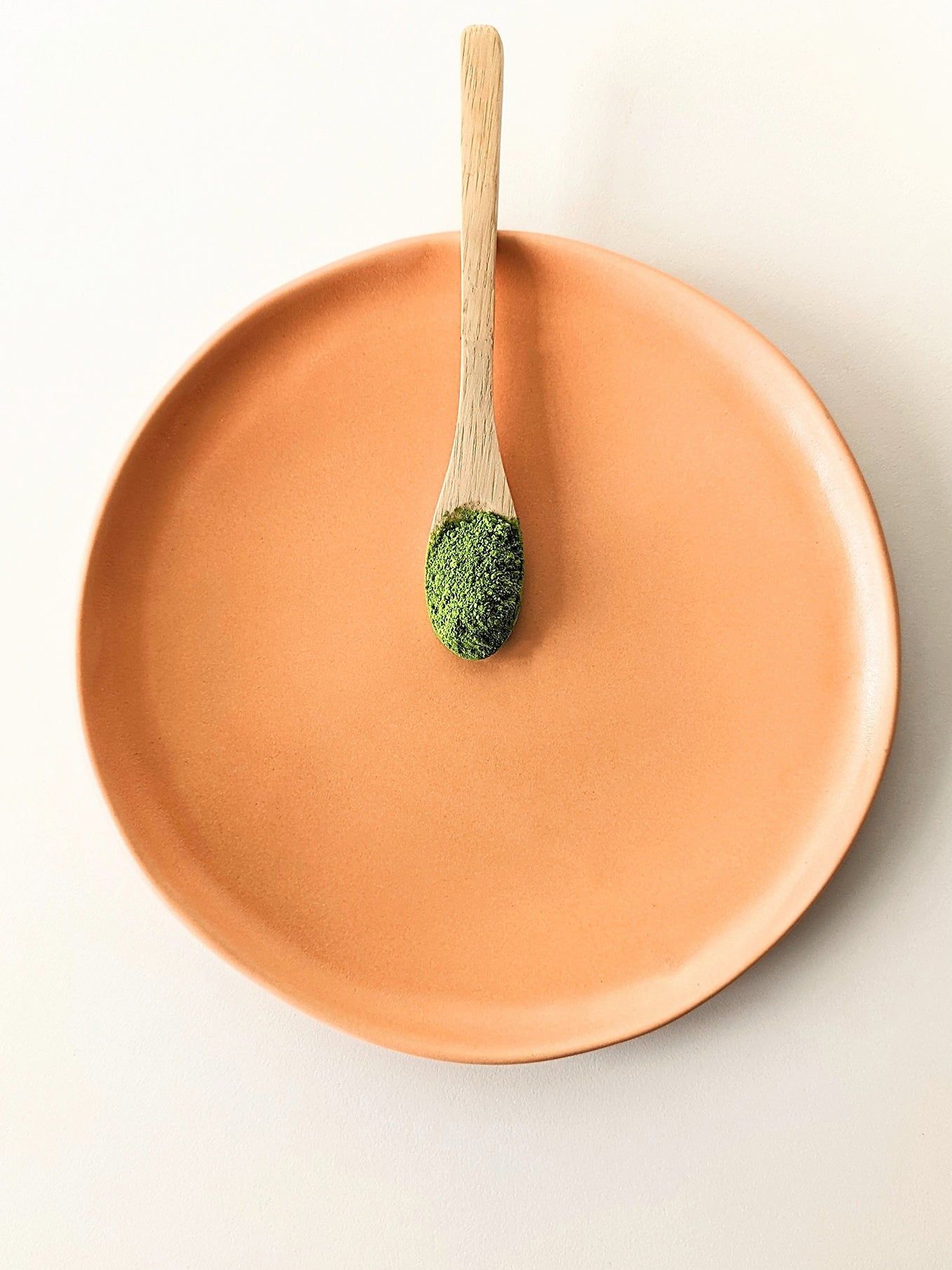
What is matcha?
a closer look
Matcha is a powdered green tea that is high in antioxidants. Traditional green tea involves steeping the leaves in hot water and discarding them. Matcha, on the other hand, consists of powdered dried leaves that are mixed into a drink and consumed. Known for its unique, non-bitter taste and vibrant green color, it is considered the most aromatic of all green teas.
Nutrients and minerals
-
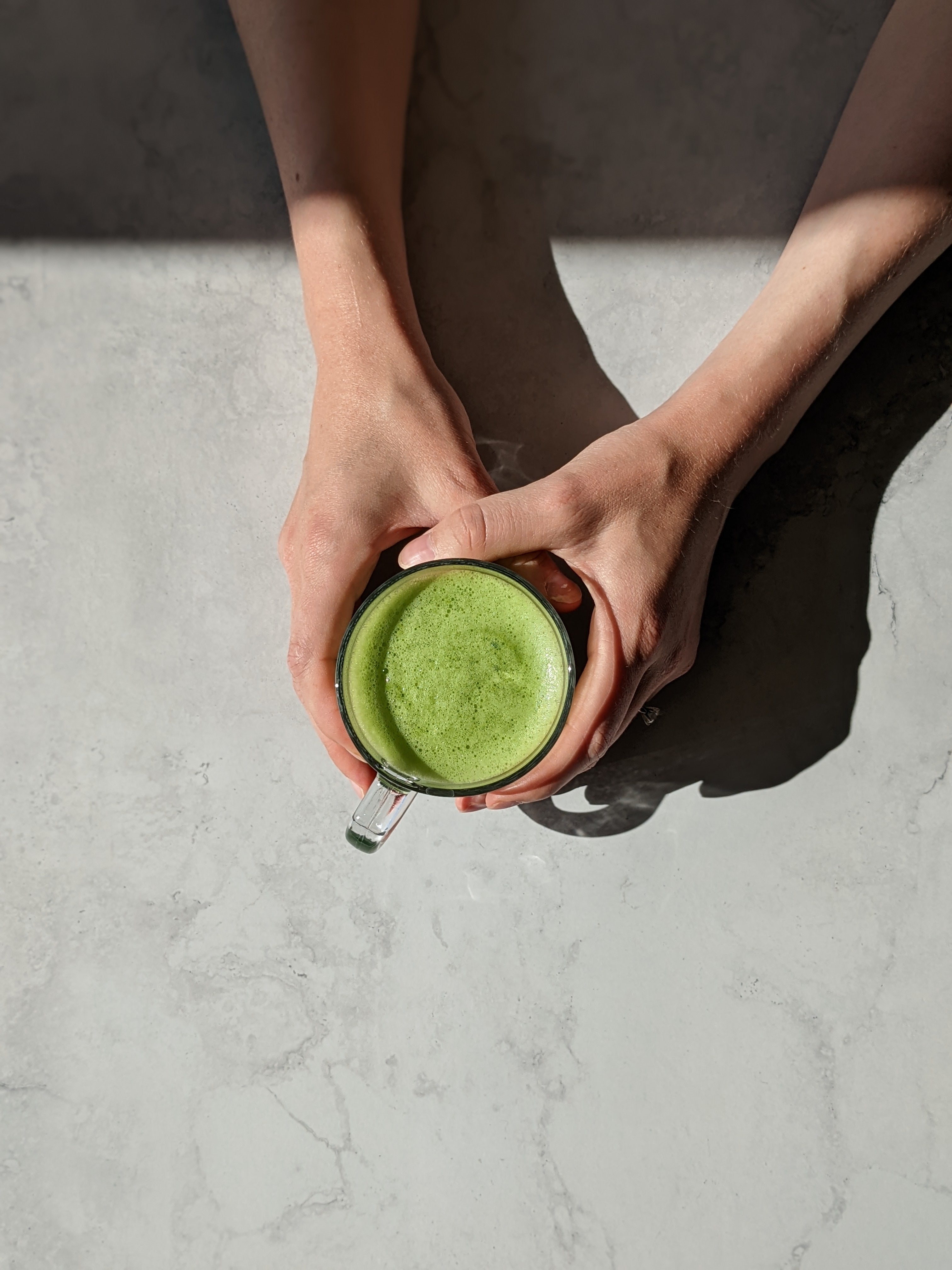
L-THEANINE
L-Theanine is one of the most beneficial amino acids for mental health, which is found only in matcha products. As a result of this compound, matcha increases your mind's ability to handle stress and gives you balanced energy.
-
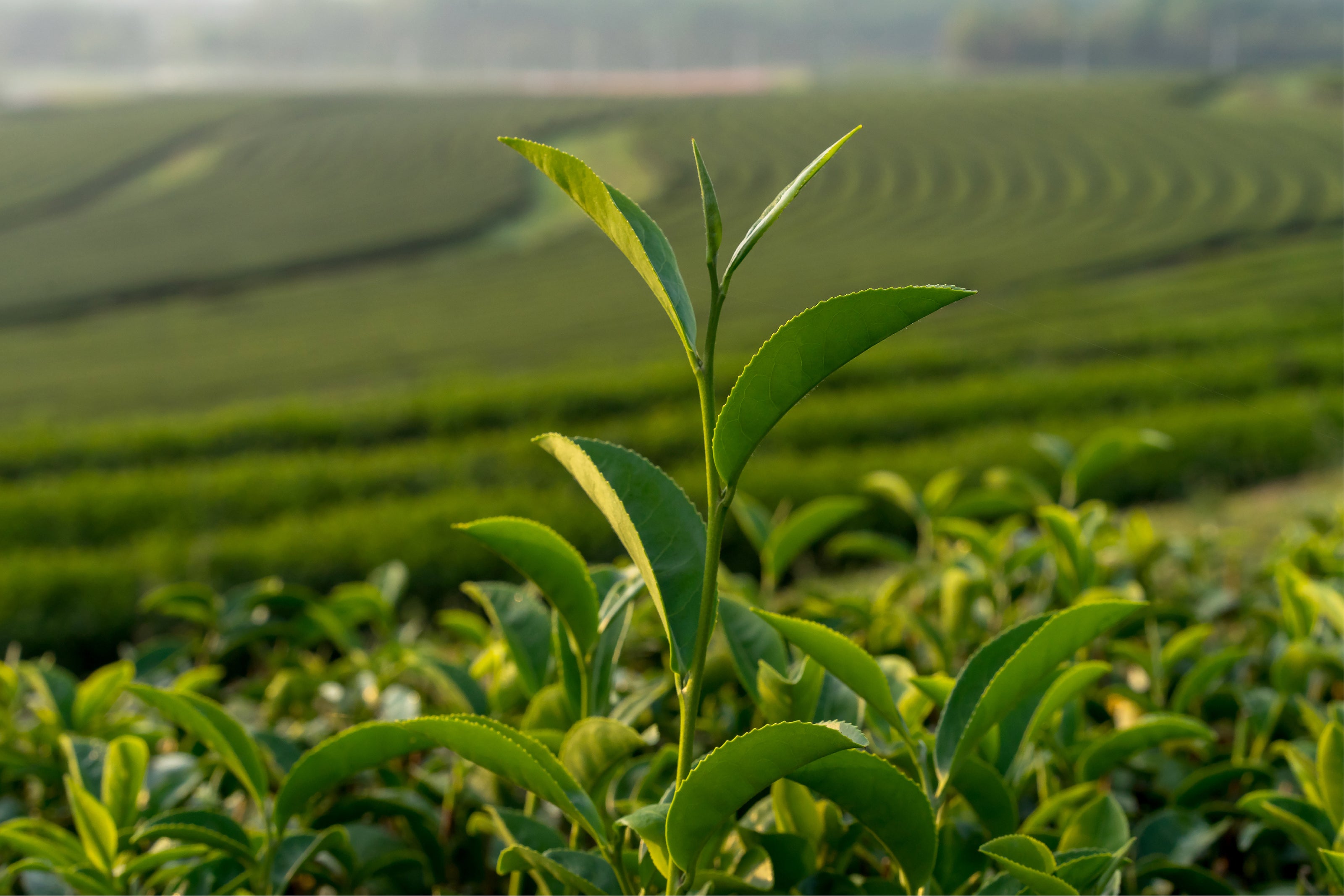
VITAMIN C
This nutrient powerhouse boosts your immunity, supports skin health, and strengthens your cardiovascular system. In addition to proper storage in freezers, we are committed to small batch orders, which ensure that your matcha is free from oxidation during the growing and grinding process.
-
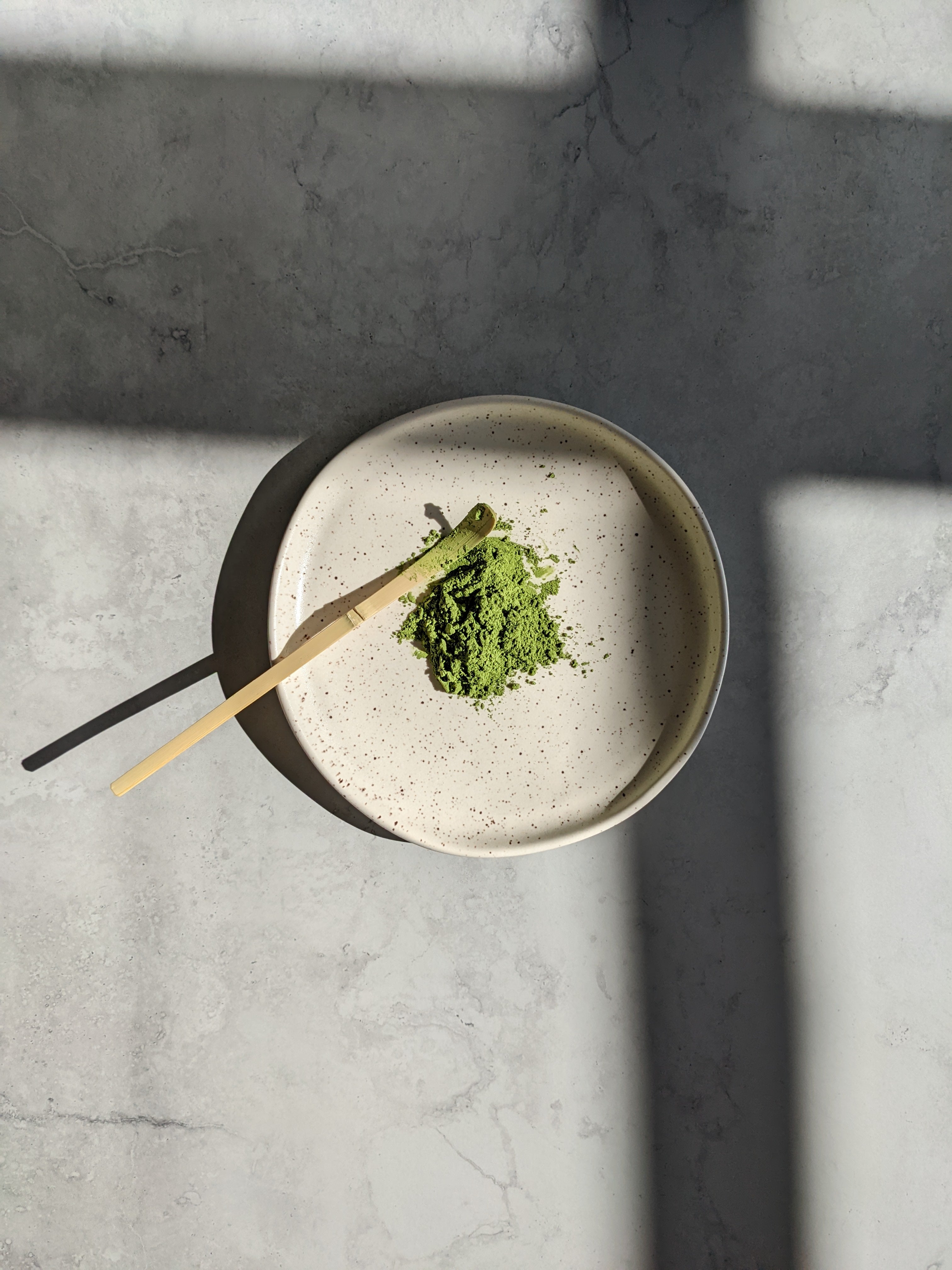
VITAMIN E
A powerful antioxidant that helps our bodies maintain their health. Vitamin E plays a crucial role in maintaining healthy blood, brain, and skin. A fresh matcha has a higher level of antioxidants and nutrients such as Vitamin E.

More energy
Despite its benefits, caffeine isn't perfect by itself. Matcha, on the other hand, contains caffeine and an amino acid called L-Theanine. Combining these two energy amplifiers will provide a long-lasting boost of energy without the anxious jitters or crash. A cup of coffee may provide up to 1-3 hours of energy, but a cup of matcha will provide up to 6-7 hours.
How it's made
Harvested in the heart of Japan
-
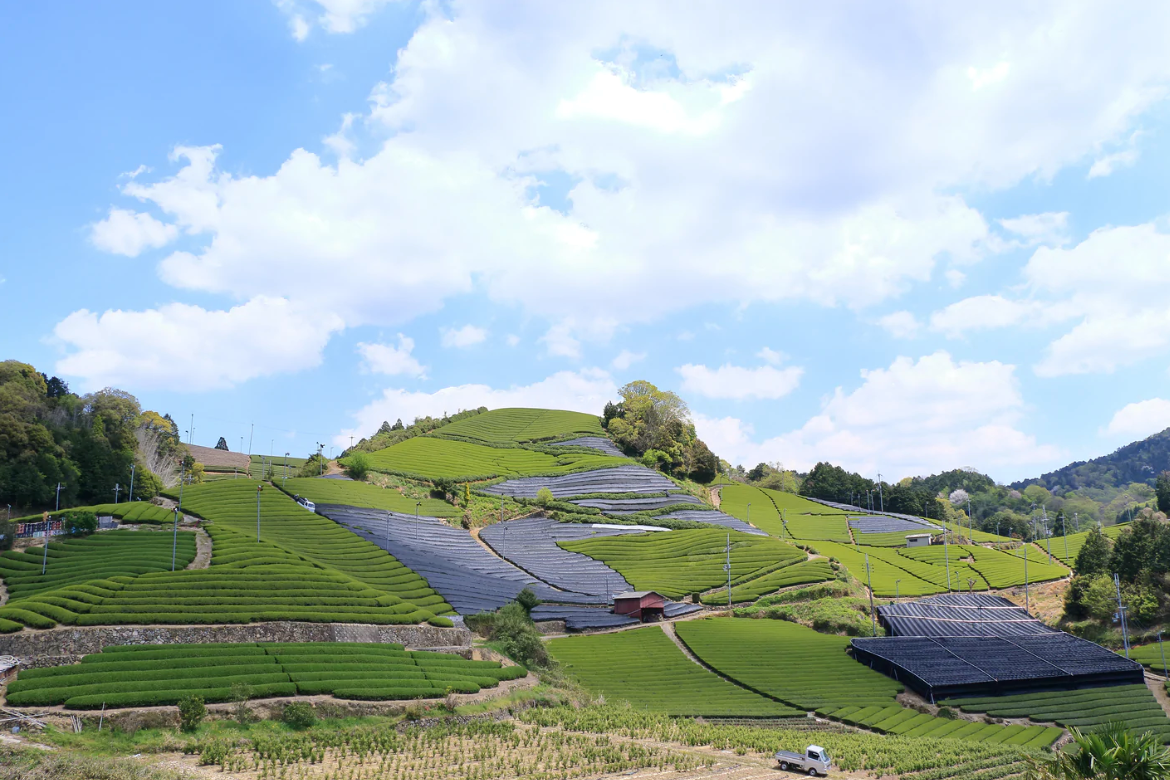
Uji, Kyoto, Japan
Uji is known for its tea, and the region is considered to produce the best matcha. Uji's geographical location and climate ensure the growth of the highest grade green tea leaves, because it gets hot and sunny summers and very cold winters.
-
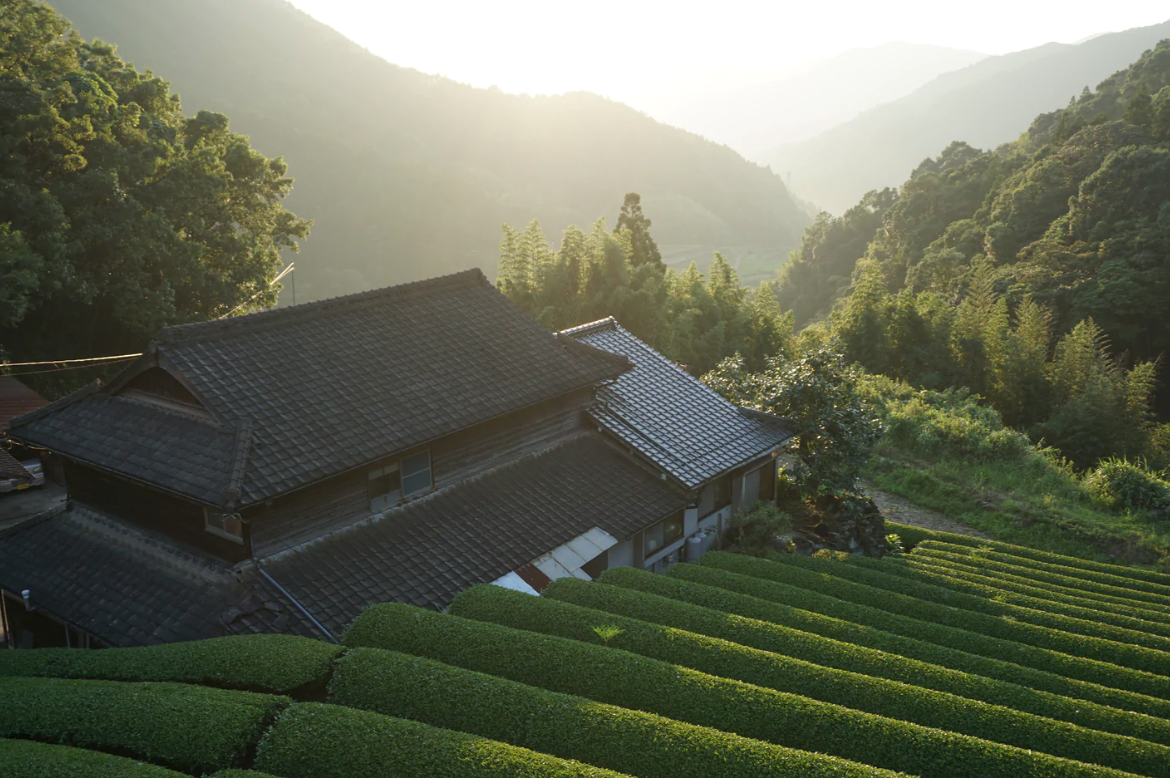
Established in 1751
Bota Matcha's matcha comes from a small organic farm that knows a thing or two about cultivating green tea leaves. Throughout centuries, this local farm has grown high grade tea with loving care, so the methods, soil quality, and breeds of tea have been perfected over time. The result: an impossibly creamy beverage that is hard to resist.
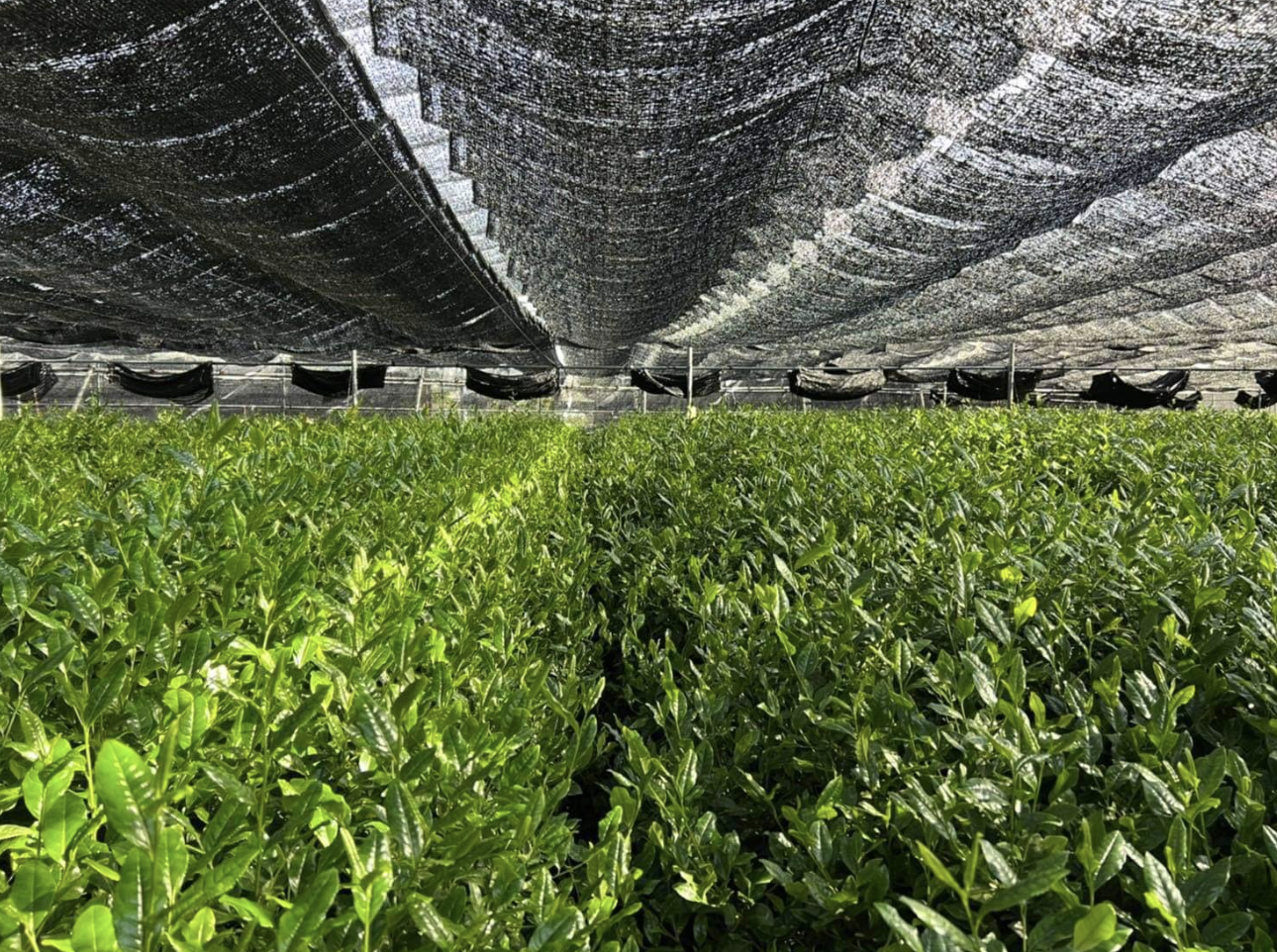
Grown in the shade
Why it matters
Bota Matcha's matcha is grown in the shade. This techique enhances the plant's nutritional content, as well as providing an enjoyable and balanced flavor profile that combines bitter catechins with sweet L-theanine.
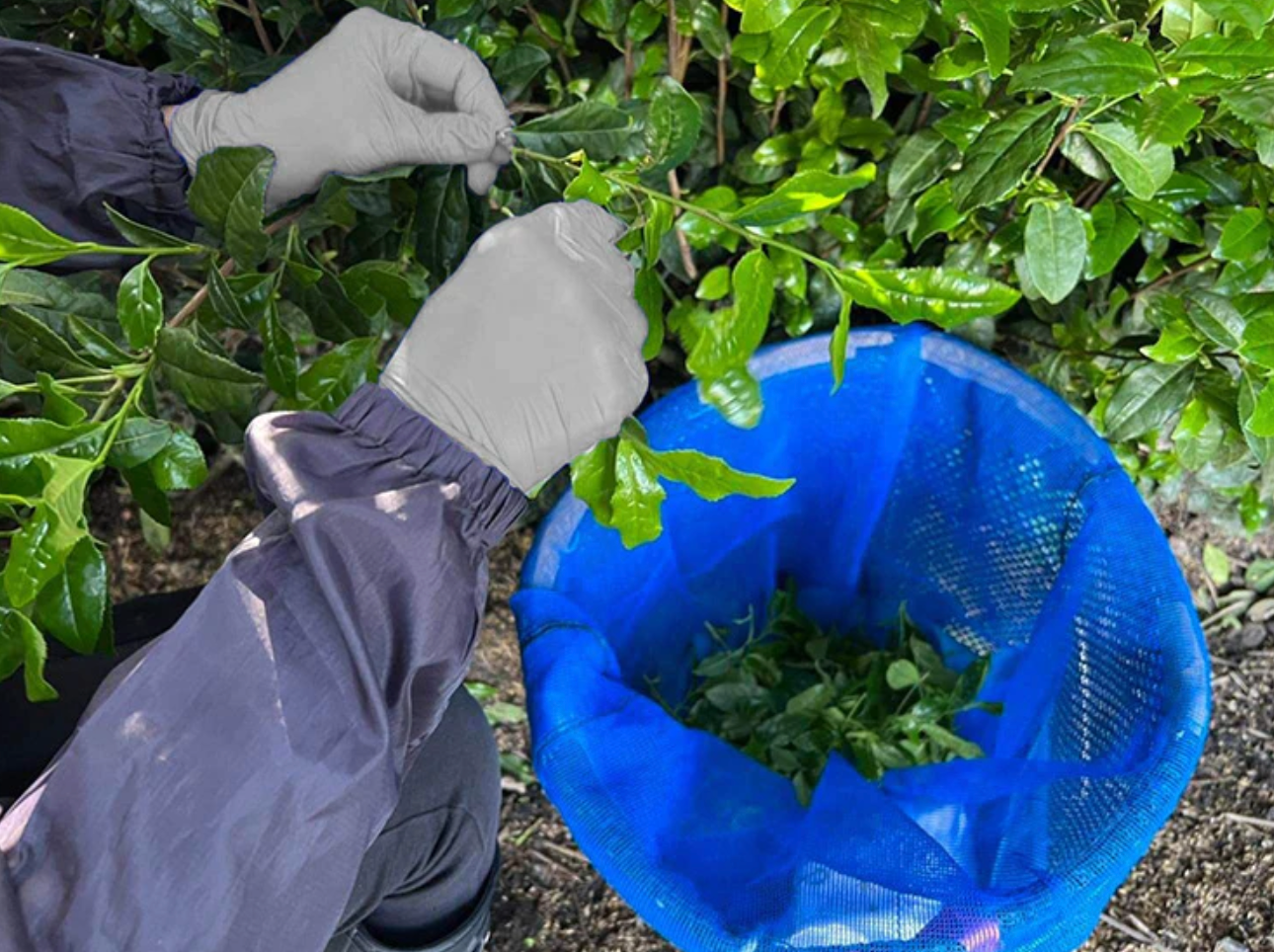
Picked by hand
a lost art
Leaves picked by machine do not produce the same high quality tea as those picked by hand. The delicate floral scent and mellow flavor of sprouts are produced when they are hand-picked from forks that already exist.
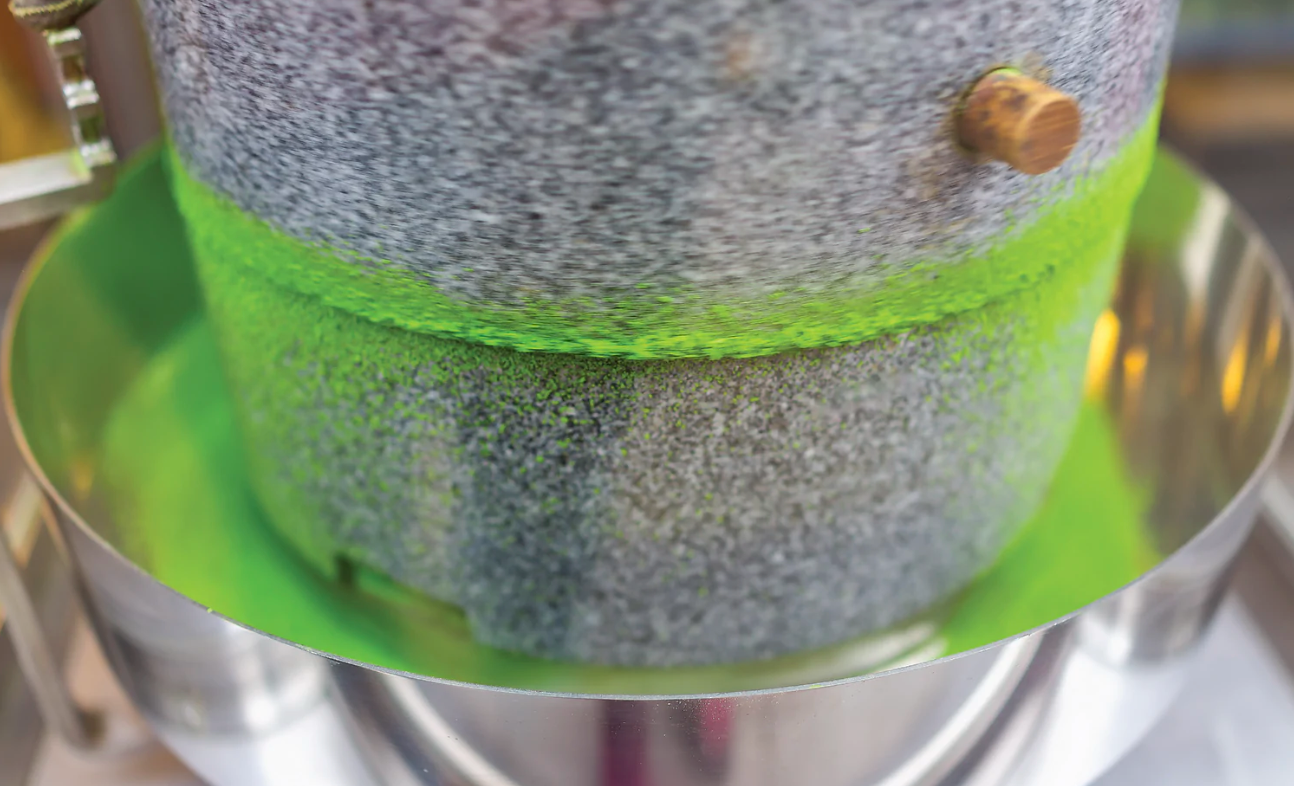
Ground by stone
Preseverving the tradition
Our matcha powder is produced by stone milling, a centuries-old traditional production method that prevents overcooking and ensures that our fresh matcha flavor and fragrance remain intact.
Bota Matcha's difference:
-
Always fresh
We guarantee that the matcha that you will receive is never older than 6 months. We have ensured that our matcha is packaged and stored under the most optimal conditions to guarantee freshness and taste every single time.
-
No bitterness
There is a pleasant savory finish to our ceremonial matcha with notes of mellow grassy vegetal notes and natural sweetness. The unique flavor of matcha is called umami, and it makes drinking it absolutely irresistible.
-
JAS organic certification
Bota Matcha uses only organic leaves to make its matcha. The Japanese organic standard certification (JAS) requires a 95% or higher organic threshold, which is much stricter than Canada's Organic Standards.





